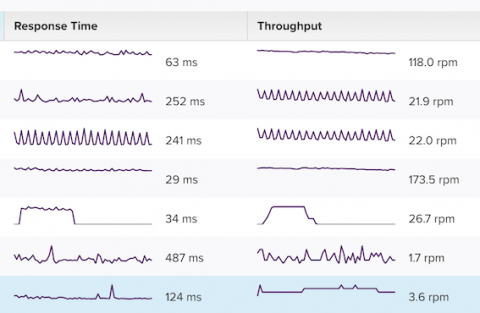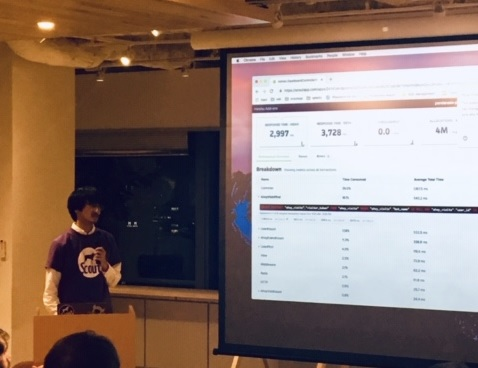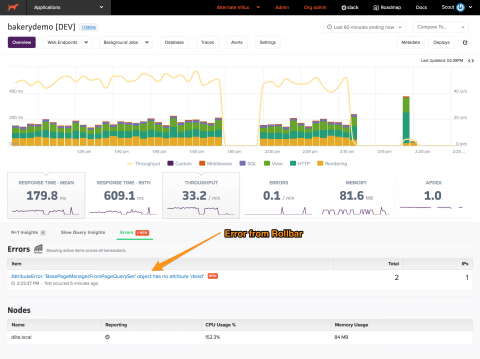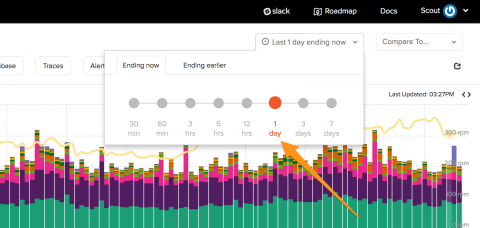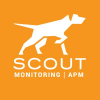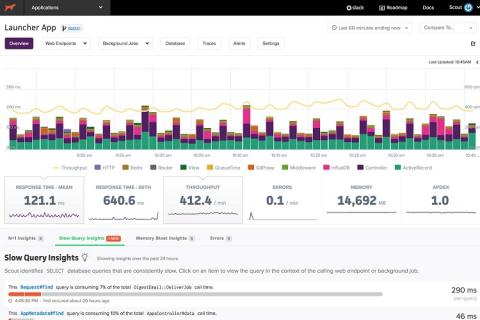Quick blog post about throughput sparkline feature
We've had sparkline charts of response time for a long time on our Endpoints tab, and now have extended them to the throughput column as well. Quickly isolate endpoints that are spiking with traffic, and drill down into them to diagnose. No need to hunt to see what's causing an unusual trend in traffic.


